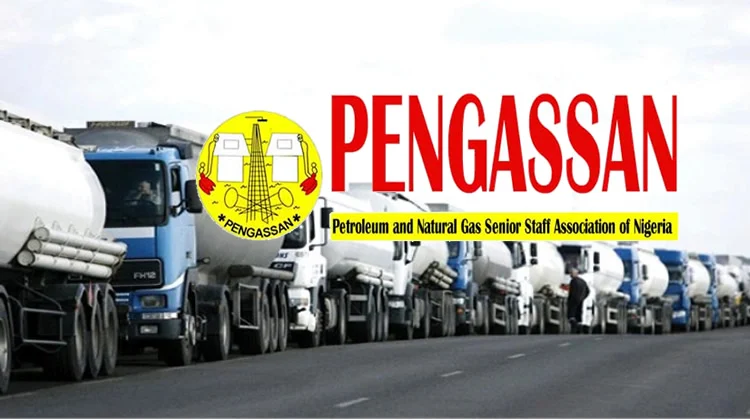Dangote diesel sulphur triggers concern, marketers fault rejection report
 The controversy surrounding the sulphur content in the Automotive Gas Oil, popularly called diesel, produced by the Dangote Petroleum Refinery, has yet to abate,
The controversy surrounding the sulphur content in the Automotive Gas Oil, popularly called diesel, produced by the Dangote Petroleum Refinery, has yet to abate,
Over the weekend, there were online reports alleging that the diesel recently supplied by the $20bn refinery contained high sulphur.
This came as oil marketers stated that despite the allegations of high sulphur in Dangote diesel, no motorist or industrial consumer had registered any complaint against the product.
“We don’t want to be involved in the politics or claims and counter-claims about Dangote diesel, but what I going to tell you is that no transporter, motorist, or industrial consumer has complained about the diesel since we started distributing it,” the National President of the Independent Petroleum Marketers Association of Nigeria, Abubakar Maigandi, stated.
A top official of the Dangote Group said the recent report on high sulphur content in Dangote diesel emanated from individuals who were hellbent on destroying the refinery, describing the report as fake.
The PUNCH recalls that the President of the Dangote Group, Aliko Dangote, and some officials of the company had earlier accused the Nigerian Midstream and Downstream Petroleum Authority of importing dirty fuel into Nigeria.
While accusing the international oil companies of plans to frustrate the refinery, the Vice President of Oil and Gas at Dangote Industries Limited, Devakumar Edwin, also accused the NMDPRA of granting licences indiscriminately to marketers to import dirty refined products into the country.
According to Edwin, the Federal Government issued 25 licences for the construction of refineries in Nigeria, but only the Dangote Group delivered on its promise.
“The Federal Government issued 25 licences to build refineries and we are the only one that delivered on our promise. In effect, we deserve every support from the government. It is good to note that from the start of production, more than 3.5 billion litres, which represents 90 per cent of our production, have been exported. We are calling on the Federal Government and regulators to give us the necessary support to create jobs and prosperity for the nation,” Edwin had stated.
He alleged that even though Dangote was producing and bringing diesel into the market, complying with the regulations of the Economic Community of West African States, “licences are being issued, in large quantities, to traders who are buying the extremely high sulphur diesel from Russia and dumping it in the Nigerian market.”
Edwin had lamented, “The decision of the Nigerian Midstream and Downstream Petroleum Regulatory Authority in granting licenses indiscriminately for the importation of dirty diesel and aviation fuel has made the Dangote refinery expand into foreign markets. The refinery has recently exported diesel and aviation fuel to Europe and other parts of the world. The same industry players fought us for crashing the price of diesel and aviation fuel, but our aim, as I have said earlier, is to grow our economy.”
He argued that because the refinery met the international standard as well as complied with stringent guidelines and regulations to protect the local environment, it had been able to export its products to Europe and other parts of the world.
“It is regrettable that in Nigeria, import licences are granted despite knowing that we can produce nearly double the amount of products needed in Nigeria and even export the surplus. Since January 2021, ECOWAS regulations have prohibited the import of highly contaminated diesel into the region,” Edwin stated.
But while the NMDPRA Chief Executive, Farouk Ahmed, was reacting to Dangote, he denied all allegations of sabotage, stating that it was the Dangote diesel that had higher sulphur content than the imported ones.
Ahmed had revealed that the refinery, which had been selling diesel and aviation fuel in Nigeria for months, had not been licensed, stating that it was still at the pre-commissioning stage with 45 per cent completion.
The NMDPRA boss warned that Nigeria could not rely heavily on the Dangote refinery for its fuel supply.
According to him, the refinery had requested the regulator to stop giving import licences to other marketers so as to be the only fuel supplier in Nigeria.
Speaking about quality, Ahmed alleged, “So, in terms of quality, currently the AGO quality in terms of sulphur is the lowest as far as the West African requirement of 50 ppm is concerned.
“Dangote refinery and some modular refineries, like Waltersmith refinery and Aradel refinery, are producing between 650 to 1,200ppm (parts per million). So, in terms of quality, their product is much inferior to the imported quality.”
Reacting during a tour of the refinery by members of the House of Representatives led by the Speaker, Tajudeen Abbas, recently, Dangote asserted that products refined at the world’s largest single train refinery are of superior quality compared to imported equivalents and meet international standards.
The speaker and other members had observed the testing of Automotive Gas Oil from two petrol stations alongside the same taken from the Dangote refinery.
The diesel samples were procured from two filling stations near Eleko junction along the Lekki-Epe Expressway, Lagos, by the lawmakers.
The Dangote laboratory tests were said to have revealed that Dangote’s diesel had a sulphur content of 87.6 ppm while the other two samples showed sulphur levels exceeding 1,800 ppm and 2,000 ppm respectively.
Speaking, Dangote emphasised that the findings had debunked claims made by Ahmed that imported diesel surpasses domestically refined products.
“We produce the best diesel in Nigeria. It is disheartening that instead of safeguarding the market, the regulator is undermining it. Our doors are open for the regulator to conduct tests on our products anytime; transparency is paramount to us. It would be beneficial for the regulator to showcase its laboratory to the world so Nigerians can compare. Our interest is Nigeria first because if Nigeria doesn’t grow, we have limited capacity for growth.
Dangote argued that the imported products being encouraged by Ahmed have failed in tests, saying most of the importers have fake certificates because the owners of the laboratories have been told what to write.
Speaking about the sulphur content, he added, “I am actually surprised for somebody to come and mention that we have a bad quality; we and other modular refineries. I can’t talk of the quality of the modular refineries, but our own today is 87ppm and by Monday (July 23), we will be at 50ppm, by the beginning of August, we will be at 10ppm.
“All the test certificates people are busy flaunting around today are fake certificates. The demarketing of a company by a regulator that he is supposed to protect is very very unfortunate. We produce the best diesel in Nigeria and if the regulator wants, he can come any time to conduct a test.”
During an interview with The PUNCH, the NMDPRA spokesperson, George Ene-Ita told our correspondent that there are about 15 engineers and scientists of the NMDPRA embedded in the refinery whose reports would get to the agency to confirm the current sulphur content of Dangote’s diesel.
The regulator has yet to make known the report from its men since two weeks ago, especially as the comments from the NMDPRA boss were greeted with backlashes.
However, different laboratory results surfaced online during the weekend, alleging that diesel supplied to retailers between April and July, revealed that the sulphur content in Dangote diesel went up to as high as 1200 ppm.
The online reports said that the fuel, delivered in 32 batches, was supplied to different depots of Rain Oil, AA Rano, TMDK Oil, Kashton, NIPCO, Sobaz, and other retail companies.
It was also alleged that two days after the lawmakers’ visit, the Dangote refinery delivered a shipment of diesel containing 950 ppm of sulphur to AA Rano’s depot in Ijegun, Lagos, saying the certificate of quality, dated July 21 was authorised by an independent laboratory name Intertek.
While reacting to this, an official of the Dangote Group said some individuals were trying to pull down the refinery.
The official, who pleaded anonymity because he was not authorised to speak with the press, described the report as falsehood.







